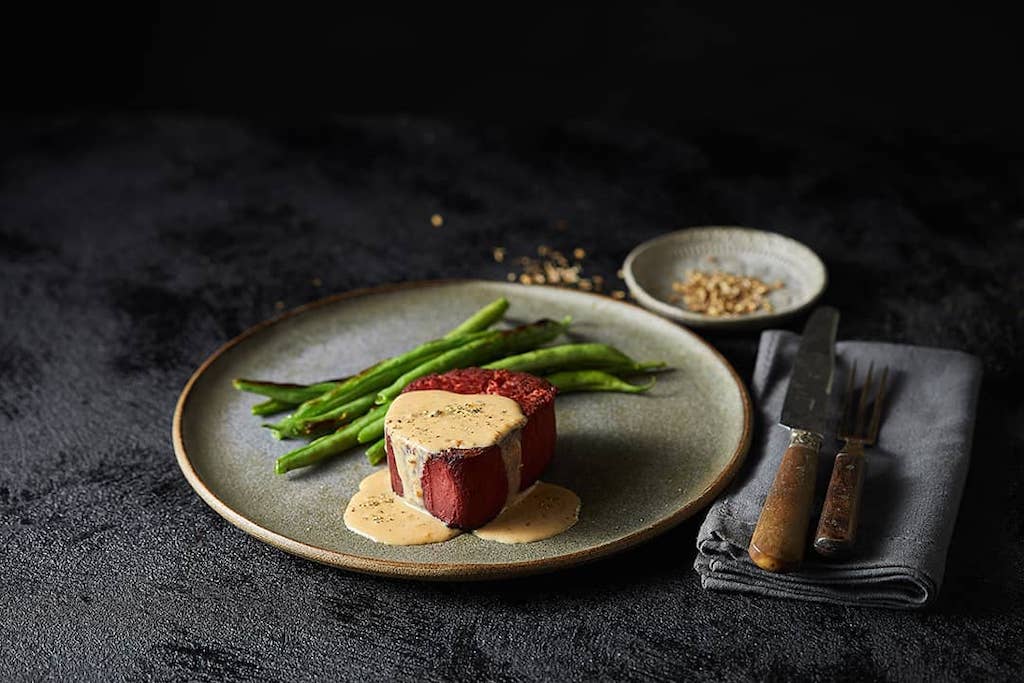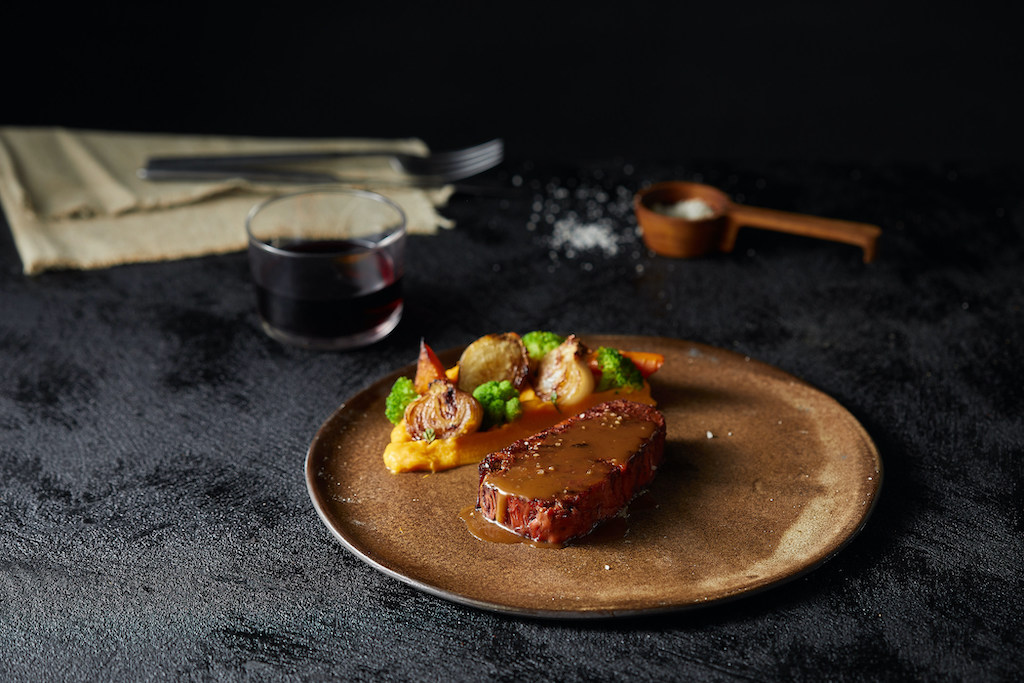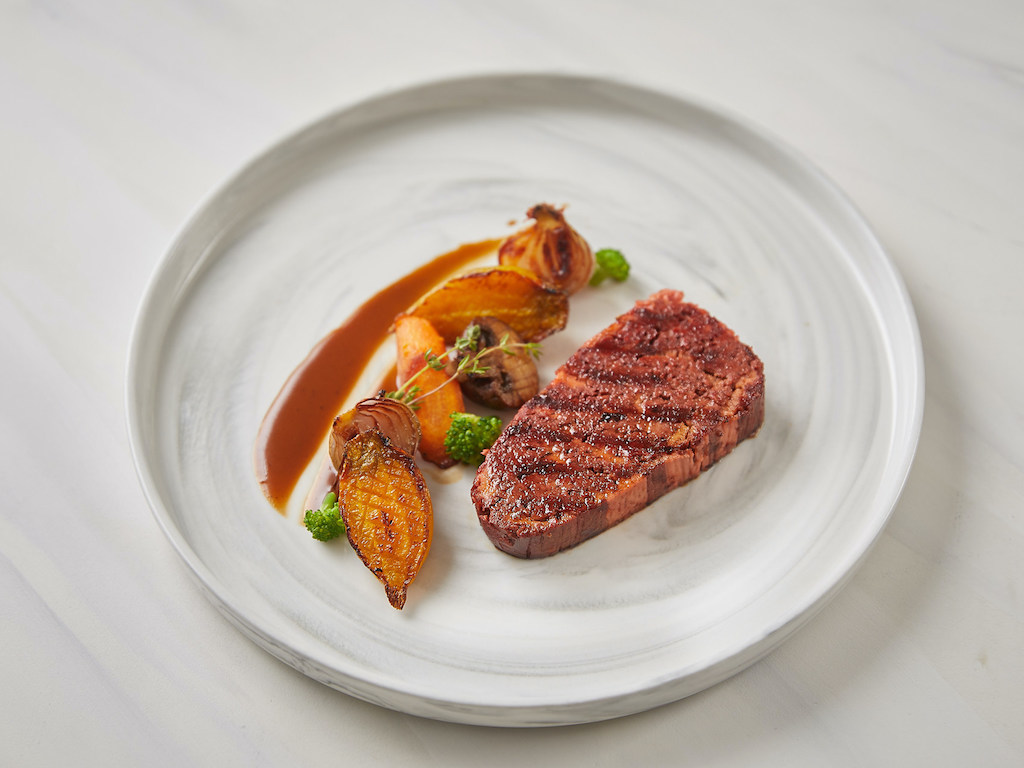3 Mins Read
Israeli food tech Redefine Meat has announced that it will soon be testing its 3D printed animal-free “Alt-Steak” at selected upscale restaurants later this year. Redefine Meat says that its patent-pending technology has enabled them to recreate the texture, appearance and flavour of a cut of beef steak at scale.
Last month, Redefine Meat unveiled its Alt-Steak plant-based product, which will be tested on the market at a number of Israeli restaurants later this year, marking a world’s first. It is created using the startup’s 3D meat printing technology, which was developed alongside leading food scientists, butchers, chefs and food ingredient specialist Givaudan.
Founded in 2018, the startup’s patent-pending industrial 3D printing technology digitally maps over 70 sensorial parameters into each “steak”, from recreating the texture and juiciness of a cut of beef steak, to the fat distribution and mouthfeel of each bite. Multiple materials are used to print the high-protein, cholesterol free alternative, using only plant-based ingredients, making it far less carbon and resource-intensive than conventional meat.
By using separate formulations for muscle, fat and blood, we can focus on each individual aspect of creating the perfect Alt-Steak product. This is unique to our 3D printing technology and lets us achieve unprecedented control of what happens inside the matrix of alt-meat.
Eshchar Ben-Shitrit, Co-founder & CEO of Redefine Meat

“The importance of using precision 3D printing technology to achieve texture, color and flavor—and the combinations between them—cannot be overstated,” explained Eshchar Ben-Shitrit, co-founder and CEO of Redefine Meat.
“By using separate formulations for muscle, fat and blood, we can focus on each individual aspect of creating the perfect Alt-Steak product. This is unique to our 3D printing technology and lets us achieve unprecedented control of what happens inside the matrix of alt-meat.”
Even more importantly, Redefine Meat says that its technology has overcome one of the biggest challenges that food techs face – cost. Their 3D printing process, according to the company, can be produced at a volume and price that will enable a large-scale market launch.
“Since day one of the company, we have been working on creating a tasty and affordable plant-based alternative to steaks, one of the most cherished food products and the driver of the entire meat industry,” said Ben-Shitrit, who added that the factors of taste, nutrition and accessibility must be met in order to drive widespread adoption of alternative proteins and disrupt the unsustainable food system.

After the initial market test, the company plans to further improve their product after incorporating feedback from restaurants, then proceed to ramp up production of its industrial 3D meat printers and formulations ahead of official market distribution as soon as 2021.
Since day one of the company, we have been working on creating a tasty and affordable plant-based alternative to steaks, one of the most cherished food products and the driver of the entire meat industry.
Eshchar Ben-Shitrit, Co-founder & CEO of Redefine Meat
This isn’t the first time that entrepreneurs have capitalised on 3D printing technology to create cuts of protein. Spanish food tech Novameat, for instance, recently unveiled version 2.0 of their 3D printed vegan “steak”, described as the most realistic product yet to mimic the texture and appearance of a cut of beef steak. For now, the startup is able to produce 50 grams for around US$1.50.
Other startups have harnessed 3D printing technology and added a personalised nutrition aspect, such as Tokyo-based Open Meals’ 3D printed pixelated sushi with added customisable nutrients suited for each diner.
Most recently, fast food giant KFC announced that it is developing 3D bioprinted lab-grown chicken nuggets made with plant material and cultured animal cells in collaboration with a Russian startup – unlike Novameat and Redefine Meat, this technology uses cultivated animal cells for the cartridge fillings.
Want to know more about the alternative protein industry? Read the latest news here.
All images courtesy of Redefine Meat.




